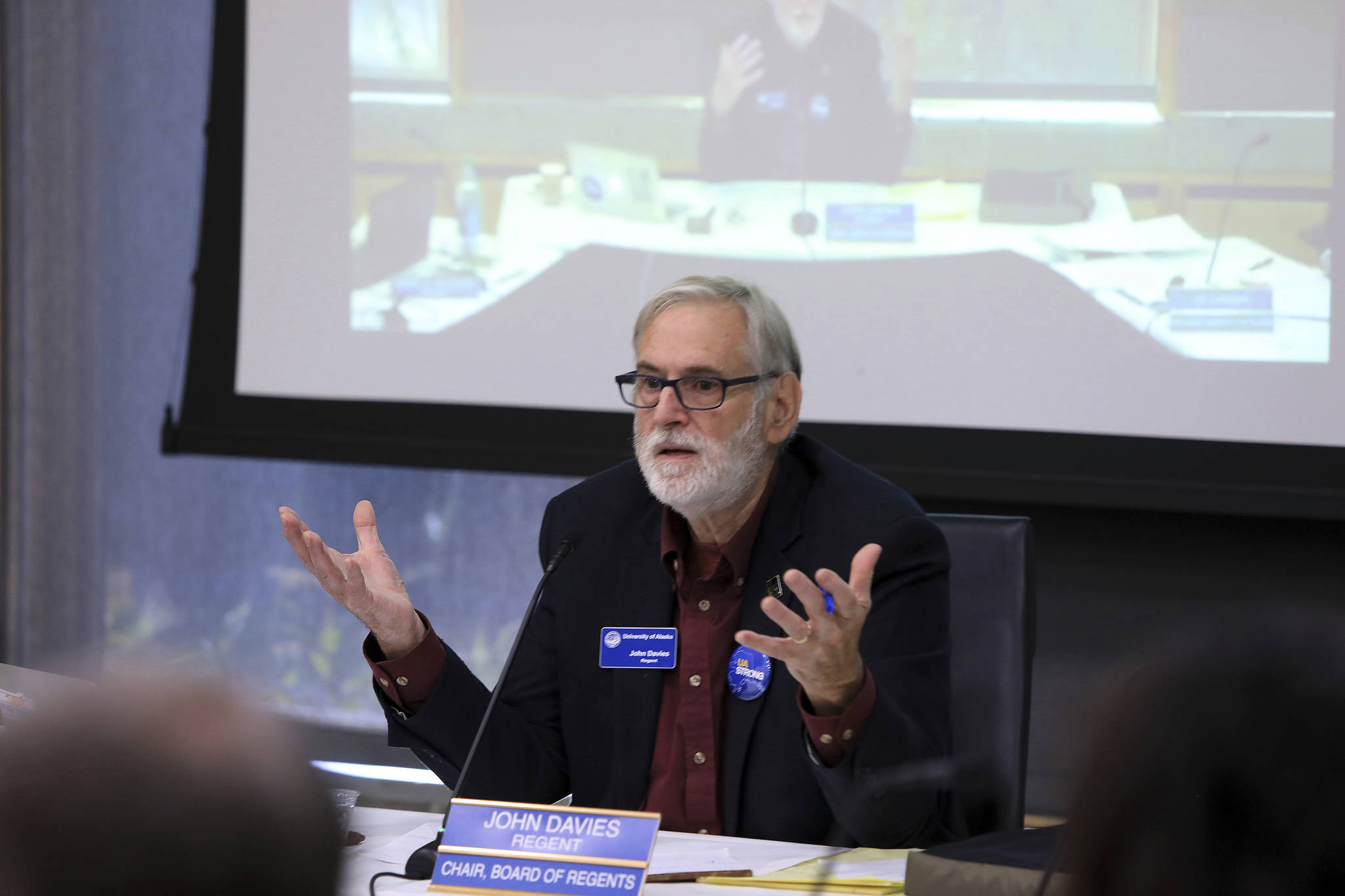Students at the Kenai Peninsula College will resume classes Aug. 26, despite uncertainty with the state budget. Director of the college, Gary Turner, said there is a lot up in the air right now involving the budget, and where the central peninsula’s community campus stands.
“We’re waiting to see action from the Board of Regents,” Turner said. “We really want answers, but we’re being patient with the processes.”
The University of Alaska Fairbanks Cooperative Extension, which has a large presence on the Kenai Peninsula, also faces uncertainty amid state budget reductions.
“(Budget reductions) will undoubtedly diminish services,” Milan Shipka, director of the UAF Cooperative Extension Service, said. “You can’t take a cut like that without services being reduced.”
At this time, Shipka said it’s impossible to say what the effects of the budget cuts will be.
He said the extension service receives some money from the United States Department of Agriculture, but that money normally requires a match of state appropriation.
“We can’t accept USDA money without the match,” Shipka said. “We may wind up with a larger reduction than others. It’s going to be noticeable.”
The cooperative extension supports agricultural resources on the Kenai Peninsula, including 4-H groups, public agricultural material resources for local growers and farmers and resources for peony farmers, among other services.
“With a few people, we cover a very broad swath of information needs on the Kenai Peninsula,” Shipka said. “From what I hear, people are grateful for it.”
Shipka said whatever resources the cooperative extension receives will go to offer the best service the organization can.
On Tuesday, the University of Alaska Board of Regents voted eight to three to consolidate the university system into a single accredited University of Alaska.
“Regents made their decision for providing the best way to serve Alaska’s students in the face of severe reduction in state funding,” a Tuesday press release from the university system said.
During the Board of Regents meeting, University President Jim Johnsen said he believed the house is on fire, in reference to the university system.
“You need to decide if the house is on fire or whether it’s just the toast burning,” Johnsen said at the meeting. “In my view, the house is on fire.”
It is still unclear how a single accredited University of Alaska will look, but a subcommittee of the Board of Regents will develop a revised organizational structure for the university, by working with students, faculty and staff governance, the release said.
The committee will be chaired by regent Mary Hughes, with regents Karen Perdue, John Bania, Andy Teuber, Cachet Garrett and Dale Anderson serving as the committee members.
Gov. Mike Dunleavy attended the Board of Regents meeting by telephone, and said he would be fully prepared to continue working with the university to lower its overhead and improve outcomes.
“I hope we can come to an understanding on how we can become one of the best universities in the country,” Dunleavy said in the release. “We stand ready to work with the university.”
Mike Barnhill, a policy director for the Office of Management and Budget, presented a proposal to the board that would reduce administration costs, delete the university’s research budget and state funds for the Museum of the North located at the University of Alaska Fairbanks.
“I am troubled by the reckless suggestion we zero our research funding,” Board Chair John Davies said of the proposal in the release. “Even if that was an achievable goal, we certainly cannot get there in five years. We are not going to hold bake sales to operate the Sikuliaq.”
The Kenai Peninsula Borough also helps provide funding for the Kenai Peninsula College. The borough is one of the only municipalities in the state to offer their community campus funding. This year, the borough contributed $800,000, which contribute to programs like the adult GED program and Jump Start, a tuition waiver program for high school students. Since 1992, the borough has provided the college with over $12 million.
The college, founded in 1964, is responsible for all postsecondary education within the borough’s boundaries. With an average of 5,700 students enrolled annually, the college is the largest University of Alaska community campus and is even larger than the Juneau campus in enrollment and student credit hours.
At Tuesday’s meeting, Johnsen said next steps include holding meetings with faculty, staff, students and community members throughout August.

